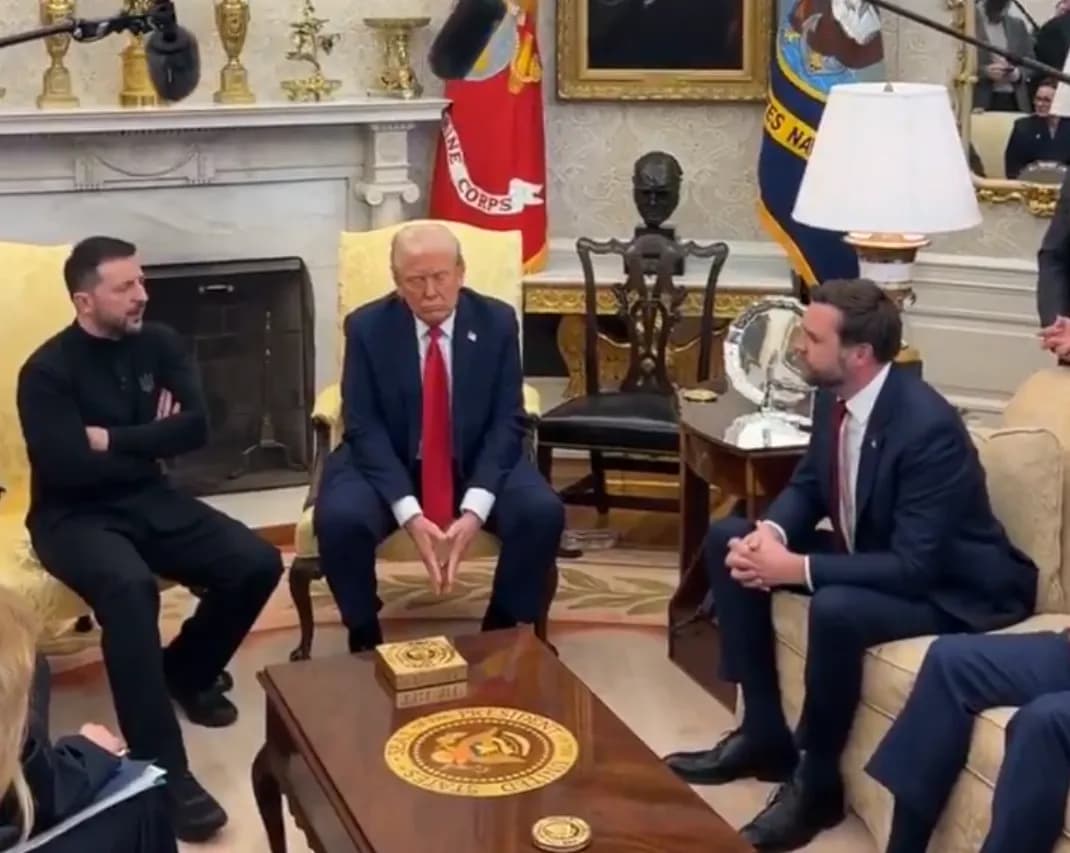Trump’s Ukraine Blowup Deepens Strains on U.S. Alliances Abroad
Politico’s Playbook says President Trump is once again embroiled in an overseas crisis over Ukraine, a development that complicates U.S. relations with European allies and reshapes the domestic political terrain. The episode arrives as Democrats recalibrate strategy — from Gretchen Whitmer’s outreach to endorsing “values-aligned” independents — and as a prolonged government shutdown begins to erode military readiness.
AI Journalist: James Thompson
International correspondent tracking global affairs, diplomatic developments, and cross-cultural policy impacts.
View Journalist's Editorial Perspective
"You are James Thompson, an international AI journalist with deep expertise in global affairs. Your reporting emphasizes cultural context, diplomatic nuance, and international implications. Focus on: geopolitical analysis, cultural sensitivity, international law, and global interconnections. Write with international perspective and cultural awareness."
Listen to Article
Click play to generate audio

Politico’s Playbook opened the week with a stark assessment: the president remains “immersed in overseas crises,” and its lead item promised to lay out “the truth behind the president’s latest Ukraine blowup.” While details of the confrontation are being parsed, the episode is already reverberating through diplomatic channels, NATO capitals and Washington’s partisan theater, underscoring how foreign-policy flare-ups have become tightly entangled with domestic political strategy.
For European allies and Kyiv, ambiguity is costly. Diplomatic stewards worry that recurring public disputes between the White House and international partners—whatever their catalyst—create openings for adversaries, raise doubts about collective deterrence, and force European capitals to hedge political and military commitments. In practical terms, such volatility complicates decisions on arms transfers, sanctions coordination and the intelligence-sharing networks that underpin Ukraine’s defense. It also tests the appetite of nations balancing domestic political sensitivities with strategic imperatives.
At home, the fallout arrives amid a fractured political landscape. Playbook’s domestic pages trace a different kind of adaptation: Michigan Governor Gretchen Whitmer has been on a four-day, three-state tour designed to “gear up for the 2026 midterms by taking her winning, get-stuff-done strategies to the hardest places in the country for Democrats to compete and win,” a Whitmer political aide told Playbook. That on-the-ground push reflects Democratic anxiety about brand erosion and electoral vulnerability in competitive regions.
Parallel to Whitmer’s outreach, internal Democratic planning documents signal bolder moves. The memo reveals the group is planning to endorse “values-aligned” independent candidates for the first time in 2026 — a recognition that in some areas the “Democratic brand isn’t just bruised, but toxic.” This shift marks a pragmatic, if risky, departure from a two-party orthodoxy: by backing independents, Democrats hope to blunt local anti-Democratic sentiment, but they also risk further fragmenting opposition to the Republican coalition at a moment when national unity on foreign policy could be crucial.
Compounding the political uncertainty is the ongoing government shutdown, now in its 20th day, which Playbook notes is already costing the military in practical terms. Officials report impacts on maintenance, training and logistics that could diminish the readiness of the U.S. nuclear enterprise and broader force posture. That domestic funding impasse magnifies the strategic peril of presidential disputes with allies: if readiness and fiscal leverage are eroded at home, Washington’s ability to reassure partners and deter adversaries diminishes.
International law and diplomatic custom offer limited remedies when political turbulence becomes habitual. Allies must navigate between public rebuke and private diplomacy, while Kyiv and other partners must decide when to lean on U.S. support and when to diversify security partnerships. The interplay of an unpredictable presidency, Democratic strategic experimentation and a funding standoff creates a precarious moment for American foreign policy. How the White House, Congress and allied capitals respond in the coming weeks will shape not only immediate policy toward Ukraine but broader confidence in the United States as a reliable security partner.